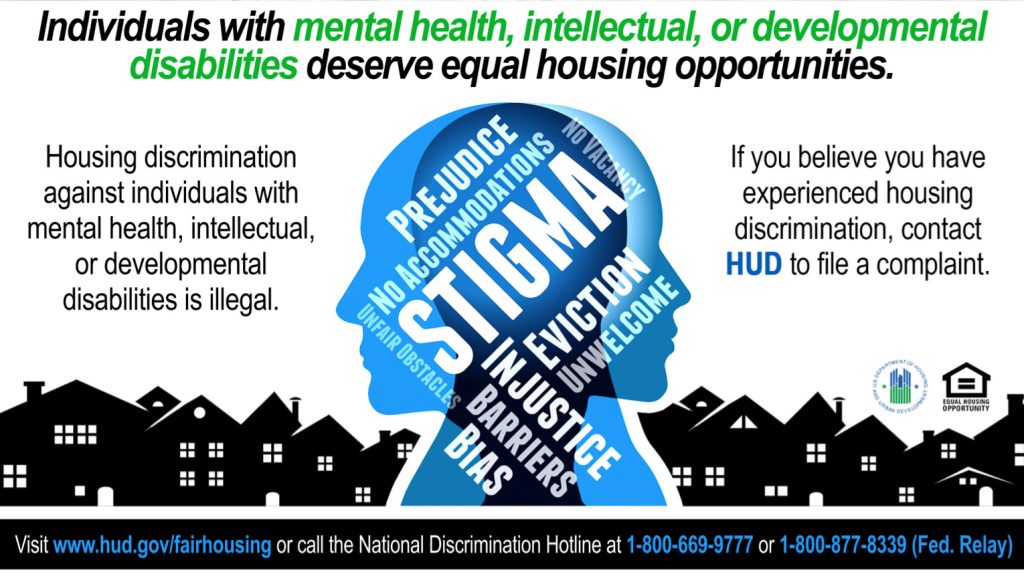The U.S. Department of Housing and Urban Development (HUD) announced that it is commemorating Mental Health Awareness Month 2021 this May with the launch of a new campaign that will educate the public about the various forms of housing discrimination people with mental health, intellectual or developmental disabilities often face, and what they should do if they believe their housing rights have been violated.
The new education and outreach campaign consists of social media graphics, as well as fact sheets for individuals with mental health, intellectual, or developmental disabilities, and housing providers, informing them of their fair housing rights and responsibilities under the Fair Housing Act, Section 504 of the Rehabilitation Act, and the Americans with Disabilities Act. Informational materials will also inform people about how to file a discrimination complaint with HUD.
“Individuals with mental health, intellectual, and developmental disabilities are protected under federal fair housing and nondiscrimination laws and cannot be denied housing or subjected to other discrimination because of their disability,” said Jeanine Worden, HUD’s Acting Assistant Secretary for Fair Housing and Equal Opportunity. “As May is Mental Health Awareness Month, HUD is informing the public about the housing rights of persons with mental health disabilities and reminding housing providers of their obligation to comply with laws protecting those rights.”
The Fair Housing Act, Section 504 of the Rehabilitation Act, and the Americans with Disabilities Act prohibit housing discrimination against individuals with disabilities, including individuals with mental health, intellectual or developmental disabilities. These laws require that individuals with disabilities be provided the same housing opportunities as those provided to individuals without disabilities.
Individuals with disabilities also have the right to receive reasonable accommodations, which are exceptions, adjustments, or modifications to rules, policies, practices, and services that may be necessary for them to have an equal opportunity to enjoy and use their housing. One common type of reasonable accommodation individuals with mental health disabilities may need is an assistance animal that provides them with disability-related support. Unfortunately, housing providers often fail to understand that they must make exceptions to “no-pets” policies and allow a tenant to have an assistance animal as a reasonable accommodation.
Visit HUD’s Fair Housing and Equal Opportunity Outreach Tools page to access educational material about the housing rights of individuals with mental, intellectual, or developmental disabilities.






